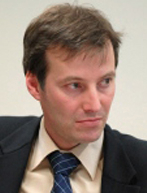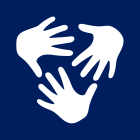Kristian Schmidt Blogs about Gender Issues for International Women's Day 2013
Discussion details

Kristian Schmidt, Director, Human and Society Development, and Acting Director, Sustainable Growth and Development DG Development and Cooperation, EuropeAid shares his thoughts on the occasion of International Women's Day, March 8th 2013
"I would like to take the occasion of International Women's Day to stop and reflect about what the European Union has undertaken since the late 1990’s to promote gender equality in its development cooperation. Much has been done, but inequalities are still a huge problem. Two months ago we issued the 2nd Implementation report on the EU Action Plan for gender equality and women empowerment in development cooperation (the GAP report). If you are reading this blog, you are most probably aware of it.
The report gives some hope. It says that actions that take into account and integrate gender equality among their main objectives are increasing. But the last results given by the Development Assistance Committee of the OECD (DAC is the Committee which evaluates donor performance on different criteria, one of which is gender equality promotion) are frightening: in 2010 only 14% of the EC development budget had gender equality as a “significant objective”. Is this possible, despite all the policy commitments, the implementation plans and the capacity development enacted by the institutions?
In my opinion, there are two main reasons explaining this.
Firstly, there is a misunderstanding of the “gender equality” concept. Many think that “gender” is a "women only" issue; worse, they think it is a "feminist" issue. They’re wrong; gender equality covers women, men, boys and girls. It refers to the equal rights, responsibilities and opportunities that all people shall have in their country and the society in which they live. Equality does not mean that women and men will become the same, but that their rights, responsibilities and opportunities will not depend on their gender.
Whenever we try to promote human rights we also promote gender equality, as human rights are for all people. Many other criteria are taken into account of course: age, religion, ethnic origin, sexual orientation, skills, but gender is also an entry point for promoting these people’s rights. Women and girls are not a minority; but they are vulnerable because the legislative, economic and social environment in which many of them live does not recognize their potential and does not offer them the same opportunities to develop, or those to participate, that it offers to men and boys. This must be addressed and corrected.
Secondly, many aim at gender equality promotion without “realising it”. Whenever we aim at benefiting a well identified final target group, we are doing gender equality promotion if the final target group has been duly analysed. Do we know whom it is composed of? How many people, how many women and how many men? What is their average age? Where do they come from (cities or rural areas, what ethnic group are they from, which caste or socio-economic environment, are they educated or not…)? What is their role in the specific sector we want to improve (agriculture, energy, entrepreneurship…)? How can we help them to improve their capacities in that sector (obtain better quality harvests, better use or access to energy, an efficient private sector system to increase their revenues)? We promote gender equality during the problem solving and decision making process by trying to have everyone’s point of view taken into account in order to improve all rights, access and control over resources. This is promoting gender equality.
That is why I cannot believe that only 14% of our programmes and projects are gender sensitive, i.e. are aware of the different roles, capacities, duties and objectives that the different components of our target groups have in the societies they live in.
That is why I believe many of us do promotion of gender equality without reporting it, and therefore the OECD DAC report is unnecessarily harsh. We have to correct this; training and information materials are available, more will be prepared and disseminated. Please read it!
This is not enough, I know.
We often have the impression that including women is so obvious that it’s automatically done. No need to check or fight for it anymore; this is wrong. Specific activities must be promoted to boost the rights and opportunities of those who are normally left behind, usually girls and women. We are accomplishing this and must continue to do so in the future.
The International day of Women is an opportunity to stop and reflect about what we can do to promote equal rights, equal opportunities and equal responsibilities for all towards sustainable development. We are all equally responsible for this, whatever the sector we’re responsible for: democracy and governance, climate change, water and sanitation, food security, etc. Whatever we’re doing, it could have different impact on the people we aim at benefitting, old and young, men and women. It is our duty to anticipate what this potential impact could be, as to reflect on the best way to improve the positive effects and avoid the negative.
I count on you to guarantee that."

Log in with your EU Login account to post or comment on the platform.